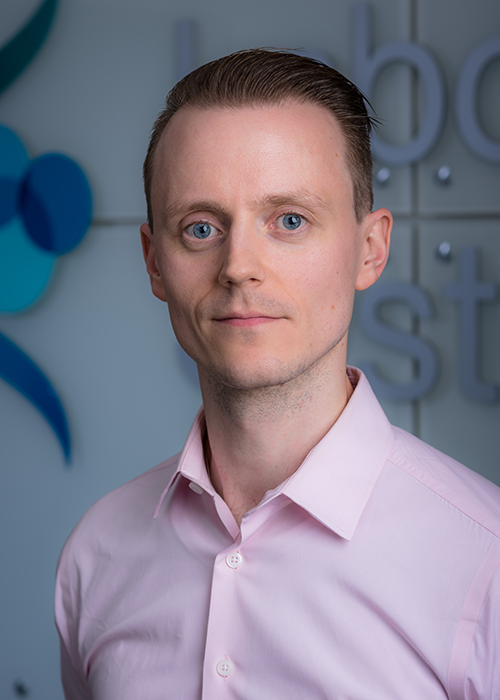Klas works as a software developer in a large lab which focuses on cancer research
Klas Karis graduated from the master’s programme in Engineering Physics (Theoretical Physics track) in 2014. He now works at the Harvard Medical School.

Hi Klas, what are you working with at the moment?
I currently work in a large lab at Harvard Medical School as a Scientific Software Developer. The lab focuses on systems pharmacology with a main focus on cancer research, but there is also research on understanding antibiotic resistance and Alzheimer’s. I am part of a small team developing software that reads scientific literature using natural language processing, extracts mechanistic knowledge and assembles various executable models such as large ODE systems or graph networks which I also develop applications on top of. The software is mostly used to assemble knowledge on biological mechanisms but there are also efforts in the group to try to model other systems like migration patterns based on reading UN reports.
What does a regular day look like for you?
On a regular day I usually get in to work and catch up on emails, on what I did yesterday, and try to wrap things up for the daily morning meeting. At the meeting, everyone goes through what they worked on yesterday, if they encountered any problems and what they plan to work on during the day. I find these meetings very productive, as they usually result in discussions of how to approach a problem someone in the team has. A couple of times a week there are talks and lab meetings with the larger lab group and you get to hear the latest on the research from other teams.

Why did you choose this degree programme at KTH?
I have always been fascinated by physics and its application in engineering. To me, doing the Master’s programme in Engineering Physics gave me the opportunity to choose from a wide range of courses taught by engaged and very knowledgeable professors that covered all my areas of interest. I had already experienced that the various physics departments had a high standard, especially for the foundation courses, for example in statistical or quantum physics for theoretical physics.
Are there any insights you acquired during your studies that have been particularly useful for you in your career?
If you want to go far, look for opportunities and grasp as many of them as you can while at the same time having a plan B. Eventually you will get that one opportunity that takes you to where you want to be or even where you didn't know you wanted to be!

What were the best aspects of your studies at KTH?
The expectation, from the professors and the people responsible for the programme, that it is your responsibility to make the most out of your studies. You get a lot of freedom in the sense that very few lectures or exercises are mandatory, making it up to you to manage your time in the way that suits you best.
What is your best memory from your time at the university?
The times around the exams when I got together with my friends for intense studying together with the time after exams when the campus came alive for the post-finals pubs.
What are your plans for the future?
Short term, I am fully focused on further developing the knowledge extraction and model assembly software we are building at my current job. I really want to see the software take off and have an impact on the way systems biology and systems pharmacology is done, while also providing a new way of gathering and analysing systemic information outside those fields. Long term, we'll see where things go. I will for sure still be the same curious person who once went to Grenoble for one year of exchange studies and came back with a hunger for new adventures, making me take the step to go to Chicago and then to Boston.
What would you say to a student thinking of applying for this programme?
It has several focus tracks, all of them respectable and rigorous. It is also possible to mix and match courses from the different tracks to a certain extent, which allows you to customize your studies closer to your needs.

